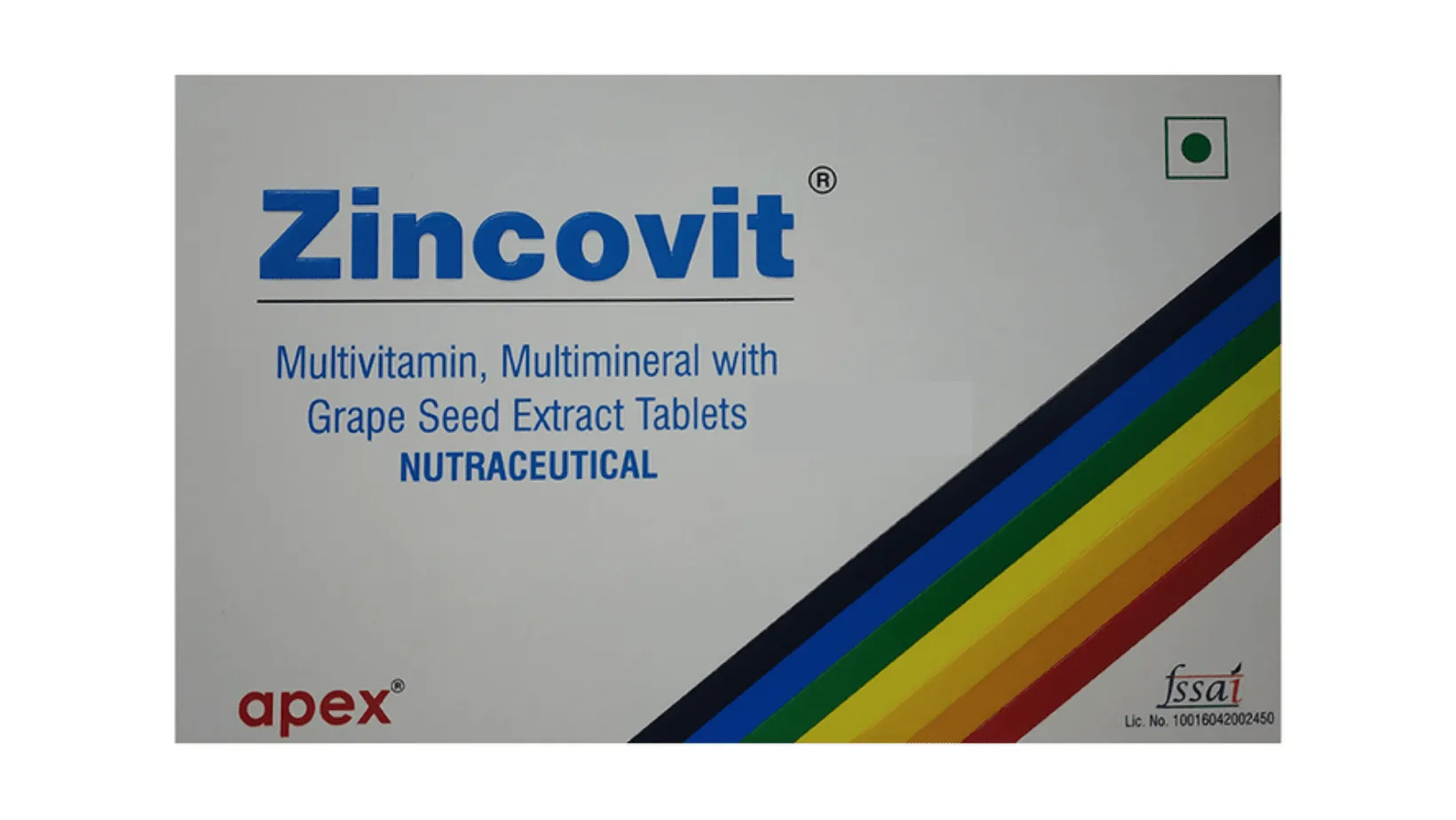Are you dealing with symptoms that make you wonder how to get rid of uric acid naturally? Achy joints, sudden swelling, redness on toes or fingers, morning stiffness, or even unusual itching; these signs might not be random.. They could be pointing toward a condition known as high uric acid levels, or hyperuricemia.
You’re not alone. Many folks deal with this and have the same question in mind: How to get rid of high uric acid naturally?
In this blog, you’ll learn what raises uric acid levels, how to reduce them using home remedies for uric acid, and how to avoid a repeat episode.
Let’s break it down.
How to Get Rid of Uric Acid Naturally? 11 Best Strategies
Here are 11 simple, effective, and safe ways to lower uric acid levels supported by research and experience that you can follow every day.
1. Limit Purine-rich Foods First
-
Limit intake of purine-rich foods such as red meats, shellfish, organ meats, sugary drinks, processed/junk foods, certain poultry cuts, and alcohol.
-
This is because purines break down into uric acid, increasing uric acid levels (hyperuricemia). A 2023 study suggests that purines contribute up to 12% of gout risk.
-
Choose low purine foods, like whole grains, fruits (especially cherries), lean proteins (e.g., eggs and tofu), and low-fat dairy products.
2. Drink Lime Juice Regularly
-
Limes are loaded with vitamin C and citric acid, both known to help break down and flush out uric acid through urine.
-
In addition, the alkalizing effect of the lime juice, when consumed, can neutralize the levels of uric acid in the blood & urine.
-
Just squeeze one lime into a lukewarm water and drink it every morning.
3. Use Apple Cider Vinegar (With Caution)
-
The acetic acid in ACV may improve metabolism, which helps break down and remove uric acid from the body.
-
Also, its anti-inflammatory effects can help manage gout, which is responsible for increased uric acid levels.
-
How to use it? Mix one tablespoon of apple cider vinegar in a glass of water and sip it daily before meals. Always dilute it to avoid any harm to your teeth and gut lining.
4. Add Cherries to Your Diet
- Cherries contain anthocyanins, which can reduce oxidative stress and inflammation, which can help decrease uric acid levels and reduce gout attacks.
-
Also, the vitamin C in cherries can support the elimination of uric acid via urine, which reduces uric acid levels.
- Tart cherry juice works, too. Just check for no added sugar. Eat a handful daily, or 1 cup of juice per day. This small habit can bring noticeable gout and uric acid relief.
5. Avoid Sugar-Rich Foods & Drinks
-
Avoid foods such as cereals, sauces, snacks, corn syrup, sodas, fruit juices, etc., as they have hidden sugar, which breaks down into purines and increases uric acid levels.
-
Faster absorption of refined sugars increases the levels of blood sugar and contributes to higher uric acid levels.
-
To reduce sugar intake, consume more whole foods, limit packaged, processed foods, replace sugary drinks with unsweetened drinks, water, and coffee with no sugar, and satisfy your sugar cravings with fruits (e.g., apples and berries). Also, check ingredient labels for added sugar.
6. Stay Hydrated
-
Drink a lot of water throughout the day, which helps the kidneys flush out around 70% of the uric acid from the body, thus reducing the uric acid levels.
-
Aim to consume at least 8 to 12 glasses of water every day. A good tip? Start your day with 2 full glasses before breakfast.
-
In case you exercise and sweat more, increase the intake of water.
7. Increase Your Fiber Intake
-
Consuming more fiber-rich foods can ease the binding of the uric acid in the digestive tract, which prevents it from entering the bloodstream.
-
Moreover, fiber helps boost healthy gut bacteria, which lowers inflammation, if increased high acid levels are associated with gout symptoms.
-
Go for oats, barley, flaxseeds, apples, and lentils. Slowly increase fiber to avoid bloating. Start with 5 g and work your way to 25 g daily.
8. Avoid Drinking Alcohol
-
Drinking alcoholic beverages such as beer can increase the production of uric acid, as they are highly rich in purines, which break down into uric acid. This contributes to higher uric acid in the blood.
-
Moreover, alcohol impairs the ability of the kidneys to flush out toxins from the body, which leads to high uric acid levels in the bloodstream.
-
Furthermore, it is responsible for the metabolism of nucleotides, which contain purines that turn into uric acid.
9. Add a Little Coffee (Not Sweetened Lattes)
-
Coffee may help fight off enzymes responsible for breaking down the purines in the body, which decreases the production of uric acid.
-
Moreover, it increases the speed at which the body flushes out the uric acid. However, more studies are needed to confirm its effectiveness.
-
Just drink a moderate amount of plain black coffee (1 to 2 cups daily). Avoid sugar-infused lattes or syrups. If you can’t drink it without a sweetener, use stevia.
10. Manage Your Body Weight
-
Excess body weight or obesity can impact the function of the kidneys, which increases the production of uric acid and reduces the elimination of uric acid via urine.
-
Instead of crash diets, go slow. So, aim for steady weight loss – 1–2 pounds per week – with a uric acid control diet and consistent movement.
-
Moreover, walking 30 minutes a day is a solid start.
11. Check Your Medications
Certain medications can cause the accumulation of uric acid. Those drugs include:
-
Aspirin
-
Diuretics
-
Vitamin B-3 (niacin)
-
Immune-suppressing drugs (e.g., tacrolimus and cyclosporine)
-
Pyrazinamide (medicine for tuberculosis)
-
Levodopa (medicine for Parkinson’s disease)
-
ACE inhibitors, beta-blockers & other blood pressure medications
-
Chemotherapy agents
Talk to your doctor if you're taking any of these and ask about alternatives. Never stop them on your own.
12. Manage Stress
-
Long-term stress can raise uric acid levels by triggering hormonal changes and unhealthy lifestyle choices, which interrupt the kidneys' ability to eliminate uric acid.
-
Practice stress reduction techniques, such as meditation, deep breathing, yoga poses, and mindfulness, to reduce stress.
-
Also, it is recommended to get at least 7 to 9 hours of adequate sleep every night and go for social connection and support.
13. Herbal Teas
-
Herbal teas have a diuretic effect, which increases urine production to flush it out of the body through the kidneys and inhibits xanthine oxidase, an enzyme that produces uric acid.
-
These teas also help improve kidney function and metabolism of uric acid, aiding the body in processing and excreting the uric acid more effectively.
-
Examples of herbal teas such as dandelion tea, green tea, nettle tea, ginger tea, cherry-infused tea, and hibiscus tea.
Diet Plan for High Uric Acid Level
|
Foods to Include |
Foods to Avoid |
|---|---|
|
Low-fat dairy (such as milk and yogurt) |
Red meat (examples include beef, pork, and lamb) |
|
Whole grains (such as oats, quinoa, and brown rice) |
Organ meats (such as liver and kidney meats) |
|
Vegetables (such as spinach, broccoli, carrots, and kale) |
High-purine fish (examples are sardines, mackerel, and anchovies) |
|
Fresh fruits (particularly berries and cherries) |
Shellfish (such as shrimp, mussels, and crab) |
|
Nuts and seeds (such as flaxseeds and almonds) |
Sugary drinks (like sweet juices and sodas) |
|
Plant proteins (such as tofu, beans, and lentils in moderation) |
Alcohol (especially beer) |
|
Green tea and lemon water |
Processed or junk foods |
|
Water (around 8 to 12 glasses daily) |
High-fructose-rich corn syrup (especially in packaged snacks) |
See More: 6 Foods to Avoid in High Uric Acid: What Not to Eat & Why
Sample Daily Meal Plan
|
Meal |
What To Eat |
|---|---|
|
Morning (7to 8 AM) |
Soaked almonds (4 to 5) and warm lemon water |
|
Breakfast (8 to 9 AM) |
Oats loaded with chia seeds, low-fat milk, and berries |
|
Mid-Morning Snack |
A handful of walnuts or one small apple |
|
Lunch (1 to 2 PM) |
Brown rice, sautéed veggies, moong dal, and cucumber salad |
|
Evening Snack (4 to 5 PM) |
Roasted chickpeas/boiled corn and green tea |
|
Dinner (7 to 8 PM) |
Whole wheat roti or quinoa, mixed vegetable curry, and low-fat curd |
|
Before Bed |
Herbal tea (without sugar) or a glass of warm water |
Tips:
-
Drink a lot of water daily.
-
Avoid fasting, as it may increase uric acid.
-
Limit the portion size of foods.
When to See a Doctor?
Seek medical attention if any of these symptoms persist or worsen:
-
Swelling
-
Discoloration or redness
-
A feeling of warmth in your joint
-
Trouble urinating
-
Pain while urinating
-
Pain after peeing
The healthcare providers can help with effective treatment.
Professional Treatment for High Uric Acid or Hyperuricemia
If diet changes don't help, medications might be needed. Common treatments include:
-
NSAIDs, colchicine, or corticosteroids for pain and swelling related to gout.
-
Allopurinol or Febuxostat to reduce uric acid levels, which increase due to gout.
-
An alpha blocker to flush out kidney stones.
-
Potassium citrate or Probenecid, or even shock wave therapy to break large stones.
-
Surgery, like joint fusion, tophi removal, or joint replacement, in rare cases when the conditions are severe.
Target Range With High Uric Acid Levels
Visit a doctor to know the right level of uric acid according to your health status.
To reduce the high uric acid levels, the ideal target is:
-
For general control: Below 6.0 mg/dL
-
For severe or frequent gout attacks: Below 5.0 mg/dL
In general, the normal uric acid level range is:
-
For men: 2.5 to 7.0 mg/dL
-
For women: 1.5 to 6.0 mg/dL
What is considered high (hyperuricemia):
The uric acid is considered high when it's over:
-
7.0 mg/dL in men
-
6.0 mg/dL in women
Potential Causes of High Uric Acid Levels
What causes uric acid to climb in the first place? Here’s a breakdown of triggers that could be silently affecting your levels:
-
Too many purine-rich foods (organ meats, seafood)
-
Heavy alcohol use, especially beer
-
Fatty diets that overload the kidneys
-
Weak kidney function, sometimes genetic
-
Medications that interfere with kidney filtration
-
Genetics, especially in men or post-menopausal women
Some studies suggest that Mediterranean and low-purine diets lower serum uric acid (SUA) levels. However, outcomes vary depending on metabolism and existing conditions.
Risk Factors For Hyperuricemia
This condition can affect anyone, but these groups have a higher chance of developing it:
-
Males, because they have lower estrogen levels, which are responsible for inhibiting the enzyme that produces uric acid.
-
Have obesity, due to insulin resistance, which interrupts the ability of the kidneys to eliminate uric acid and increases the release of uric acid from adipose (fatty) tissue.
-
Regularly drink alcohol, as alcohol metabolism breaks down purines into uric acid and impacts kidney function, reducing the elimination of uric acid via urine.
-
Regularly eat high-purine foods, as the body produces a high amount of uric acid by breaking down the purine foods into uric acid.
-
Have family members with hyperuricemia or gout due to the passing down of gene variation (that controls the production and elimination of uric acid) from one generation to another.
-
Have hypothyroidism, as this condition reduces kidney function, which interrupts the excretion of uric acid.
High Uric Acid Symptoms
You may not feel anything until it’s too late. When symptoms hit, they usually come in the form of:
-
Joint swelling and pain (gout)
-
Red, hot, and tender areas
-
Kidney stones
-
Difficulty urinating or blood in urine
Always see a doctor if you feel unexplained pain or have signs of stones.
High Uric Acid or Hyperuricemia Treatment
If diet changes don't help, medications might be needed. Common treatments include:
-
NSAIDs and colchicine for pain and swelling
-
Allopurinol or Febuxostat to reduce uric acid levels long-term
-
Surgery in rare cases: joint fusion, tophi removal, or joint replacement
For kidney stones, doctors may prescribe potassium citrate or Probenecid, or even use shock wave therapy to break large stones.
Tips to Prevent Hyperuricemia (High Uric Acid Levels)
Simple lifestyle changes help you stay uric acid-free:
-
Drink a lot of water regularly for better kidney function
-
Follow a low-purine, high-fiber diet to ensure lower levels of uric acid
-
Avoid beer and sugary drinks, as they are high in purines, which can turn into uric acid.
-
Eat more whole grains, vegetables, and lean protein, as they are rich in fiber and help manage and excrete uric acid from the system.
-
Manage stress, as chronic tension can trigger gout attacks and indirectly increase uric acid in the body.
-
Keep exercising, which helps reduce inflammation, lower uric acid levels, regulate metabolism and weight, and improve overall health, preventing gout flares.
-
Have regular appointments with a doctor to manage symptoms of chronic gout.
-
Take medications as prescribed by the healthcare providers to appropriately manage the symptoms.
Myths vs. Facts
Here are some misconceptions about the reasons behind increased uric acid levels:
Myth 1: All high-protein foods increase uric acid levels.
Fact: Plant-based protein and low-fat dairy do not extremely increase uric acid compared to animal-derived proteins, such as purine-rich meats.
Myth 2: You must avoid all types of purines completely.
Fact: In general, moderate intake of low to medium-purine-rich foods is safe.
Myth 3: Moderate consumption of alcohol is safe in case of increased uric acid levels.
Fact: No, even moderate intake of alcohol, especially beer, can raise uric acid levels to high amounts.
Myth 4: Only older adults are affected by high uric acid.
Fact: No, all age groups, particularly those struggling with obesity and poor diet, are affected by high uric acid.
Final Thoughts
So, how to get rid of uric acid naturally?
Stick to natural remedies like lime juice, cherries, and apple cider vinegar. Follow a uric acid control diet, cut the sugar, hydrate well, and manage your weight. If symptoms show up or worsen, consult your doctor for targeted treatments.
Dealing with uric acid isn’t just about treatment – it’s about daily habits. Fix those, and you’ll see your levels drop steadily.
Disclaimer: This article is intended for informational and educational purposes only and is not an alternative to professional recommendations, diagnoses, or treatment. Always seek guidance from medical professionals for managing any health conditions, especially if you have preexisting health issues or are taking any medications.
वारंवार विचारले
What foods should be avoided to manage uric acid levels?
Limit intake of high-purine foods like organ meats, certain seafood, and beer to help reduce uric acid levels.
What is the fastest way to lower uric acid?
Prescription medicines like colchicine, probenecid, and allopurinol are the fastest way to reduce high uric acid levels.
What level of uric acid is dangerous?
A uric acid level above 6.8 mg/dL may pose an increased risk of gout and other complications.
What is the number one food that causes gout?
Shellfish and red meat are the most common foods that cause gout as they are highly rich in purines.
Can intermittent fasting help reduce uric acid levels?
Yes, but with care. While short-term fasting might improve insulin sensitivity, long fasts can increase purines due to muscle breakdown. Always consult a doctor before fasting if you have gout.
Is lemon water good for uric acid?
Yes. Lemon water helps alkalize urine and makes it easier to flush uric acid. It’s best taken early morning on an empty stomach.
Are bananas good for uric acid?
Yes, bananas are low in purines and rich in vitamin C and potassium. They may help lower uric acid levels when eaten regularly.
Does stress increase uric acid?
Yes, chronic stress raises cortisol and insulin, which may affect how the kidneys clear uric acid. Relaxation techniques can help.
Can uric acid levels change daily?
Yes. They can fluctuate due to food, hydration, medication, or exercise. That’s why blood tests may need to be repeated.
लिहिलेले







